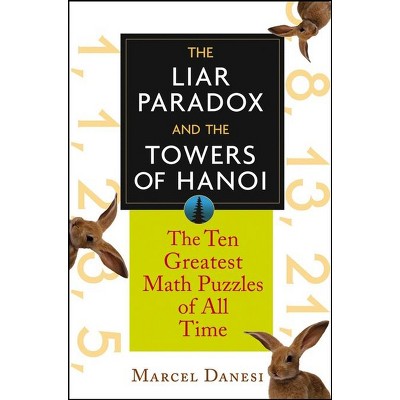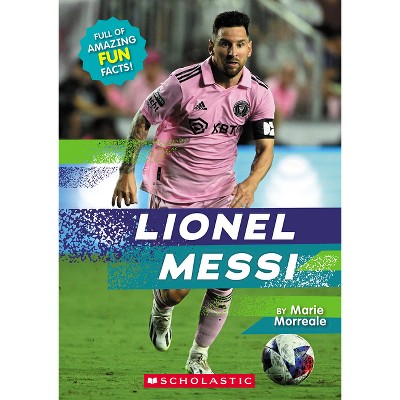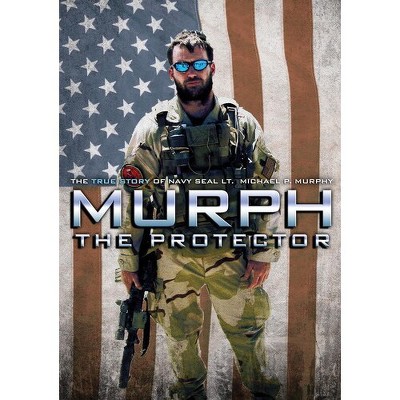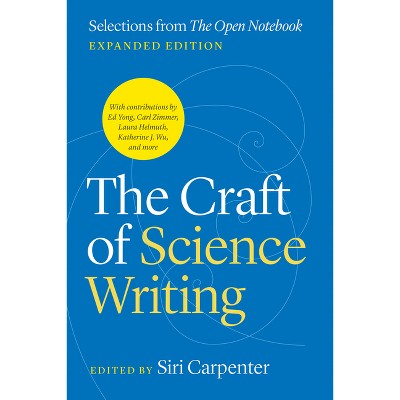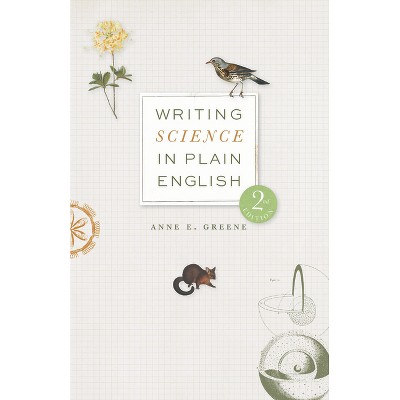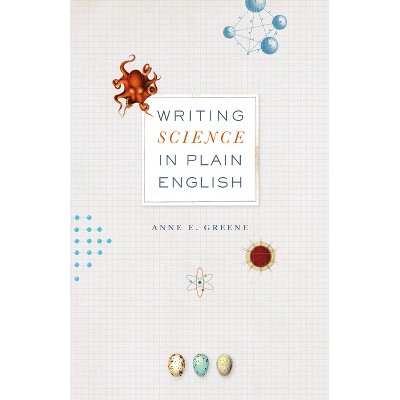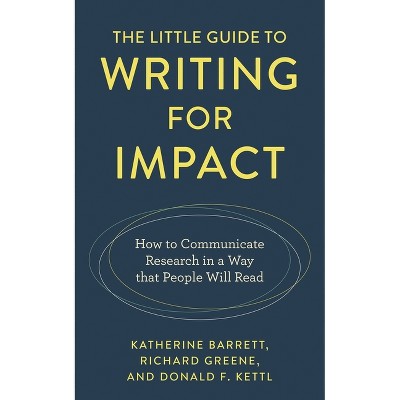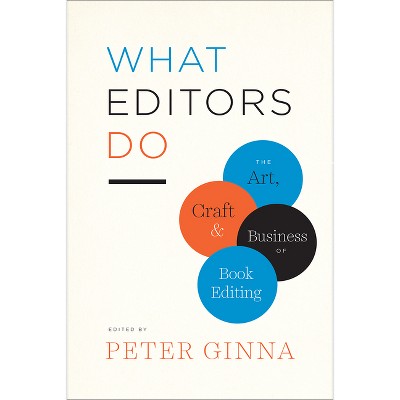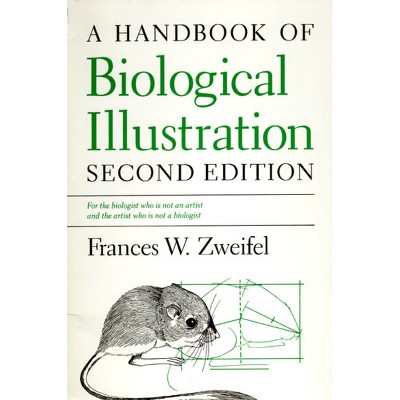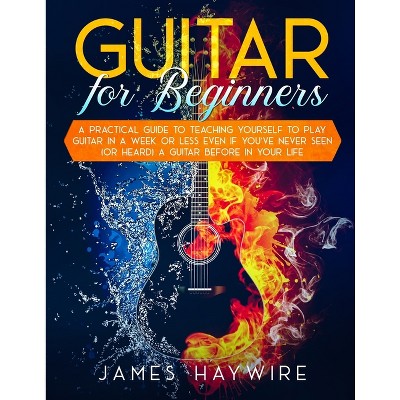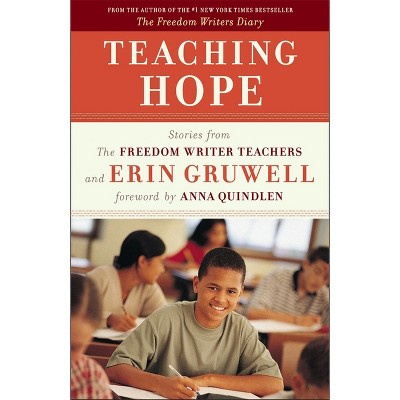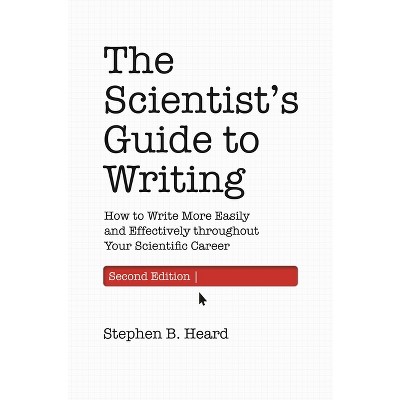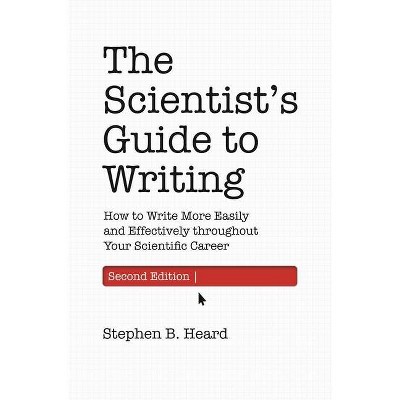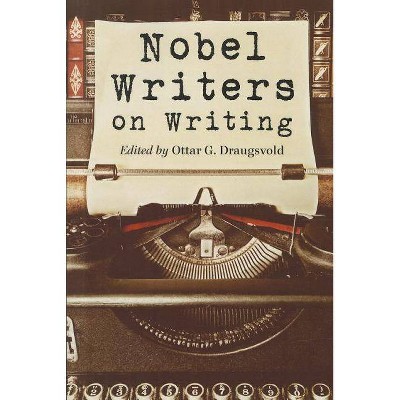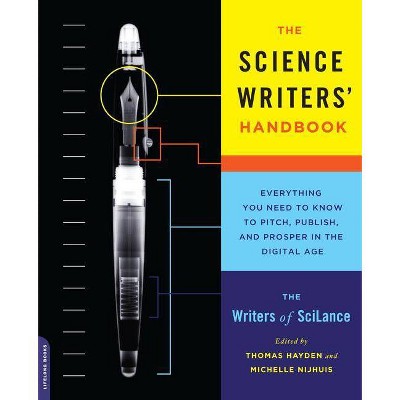Sponsored

Teaching and Mentoring Writers in the Sciences - (Chicago Guides to Writing, Editing, and Publishing) by Bethann Garramon Merkle & Stephen B Heard
$22.50
Pre-order
Eligible for registries and wish lists
Sponsored
About this item
Highlights
- Blending deep experience, humor, and evidence-based advice, this is an invaluable resource for everyone involved in developing good scientific writers.
- About the Author: Bethann Garramon Merkle is professor of practice at the University of Wyoming, where she teaches and studies science communication and scientific writing.
- 256 Pages
- Science, Reference
- Series Name: Chicago Guides to Writing, Editing, and Publishing
Description
About the Book
"Blending deep experience, evidence-based advice, and good humor, this is an invaluable resource for everyone involved in developing good scientific writers. Every scientist eventually teaches scientific writing or mentors junior scientists as they develop their writing skills-only to discover that the task is both challenging and remarkably time-consuming. If you are in this position, Teaching and Mentoring Writers in the Sciences is the resource you need, offering approaches that will help you help writers develop their skills more effectively and with less time and effort. Bethann Garramon Merkle and Stephen B. Heard, both experts in scientific communication, offer evidence-based advice that draws on their own extensive experience as well as on proven tactics from writing studies, science studies, and rhetoric and composition. Shorn of the unfamiliar and off-putting jargon that much pedagogy literature adopts, their advice is engaging and accessible to scientists. As you read, you'll see where developing writers are coming from; how mastering scientific writing matters to the careers of students who do and don't continue in academia; how writing occurs and is taught in both undergraduate and graduate curricula; how to find and harness teaching resources that help share the workload; how to teach writing to students who speak English as an additional language; and how to navigate the use (by yourself and by developing writers) of tools from pencils and dictionaries to AI writing assistants. If you teach or mentor scientific writers, this book will help you deliver what your students and mentees need most: clear, effective writing guidance"-- Provided by publisher.Book Synopsis
Blending deep experience, humor, and evidence-based advice, this is an invaluable resource for everyone involved in developing good scientific writers. Every scientist eventually teaches scientific writing or mentors junior scientists as they develop their writing skills--only to discover that the task is both challenging and remarkably time-consuming. If you are in this position, Teaching and Mentoring Writers in the Sciences is the resource you need, offering approaches that will help you help writers develop their skills more effectively and with less time and effort. Bethann Garramon Merkle and Stephen B. Heard, both experts in scientific communication, offer evidence-based advice that draws on their own extensive experience as well as on proven tactics from writing studies, science studies, and rhetoric and composition. Shorn of the unfamiliar and off-putting jargon that much pedagogy literature adopts, their advice is engaging and accessible to scientists. As you read, you'll see where developing writers are coming from; how mastering scientific writing matters to the careers of students who do and don't continue in academia; how writing occurs and is taught in both undergraduate and graduate curricula; how to find and harness teaching resources that help share the workload; how to teach writing to students who speak English as an additional language; and how to navigate the use (by yourself and by developing writers) of tools from pencils and dictionaries to AI writing assistants. If you teach or mentor scientific writers, this book will help you deliver what your students and mentees need most: clear, effective writing guidance.Review Quotes
"A treasure trove. . . . As someone who teaches writing to scientists and lots of other people, I can confidently say: this book gets it. Teaching and Mentoring Writers in the Sciences is smartly focused and refreshingly practical. Merkle and Heard understand that writing in the sciences doesn't happen in a vacuum: It's shaped by mentorship, institutional pressures, what's happening in the wider world--and now AI. This book is a lifeline for anyone designing writing courses or struggling to support research students. It offers genuinely useful advice on assessment (a rare feat in the age of ChatGPT), mentoring for process not just product, and clear strategies for giving better feedback (a skill most academics were never taught). The EAL chapter alone is worth the price of admission--insightful and refreshingly non-patronising. What the authors have to say about AI in scientific writing is especially strong--informative, nuanced, and timely. If you're a research supervisor or teacher who's tired of just 'correcting' student work and wants a more thoughtful way to teach writing, this book delivers."--Professor Inger Mewburn, creator of "The Thesis Whisperer"
"This book offers something rare: guidance for scientists who teach and mentor students in writing without much formal training in it themselves. In a clear and engaging way, the authors offer practical, evidence-based strategies on everything from giving feedback to using AI. Essential reading for scientists helping students grow into confident, capable scientific communicators."--Faith Kearns, author of "Getting to the Heart of Science Communication"
"While scientists are taught how to write, how many of us have learned how to teach writing? This eminently pragmatic guide can rectify that situation, and I recommend it to all of us to improve our craft as teachers and mentors."--Terry McGlynn, author of "The Chicago Guide to College Science Teaching"
About the Author
Bethann Garramon Merkle is professor of practice at the University of Wyoming, where she teaches and studies science communication and scientific writing. She is a transdisciplinary researcher who melds art, writing, and social science research to understand and enhance how we train scientists. She was formerly a science journalist and editor, has contributed to many collaborative book projects, and blogs at School of Good Trouble. Stephen B. Heard is honorary research professor at the University of New Brunswick. He is an evolutionary ecologist and the author of The Scientist's Guide to Writing and Charles Darwin's Barnacle and David Bowie's Spider. He blogs at Scientist Sees Squirrel. He has spent many years teaching scientific writing; he still finds it hard, but not nearly as hard as he once did.Dimensions (Overall): 9.0 Inches (H) x 6.0 Inches (W) x .7 Inches (D)
Weight: .81 Pounds
Suggested Age: 22 Years and Up
Number of Pages: 256
Genre: Science
Sub-Genre: Reference
Series Title: Chicago Guides to Writing, Editing, and Publishing
Publisher: University of Chicago Press
Format: Paperback
Author: Bethann Garramon Merkle & Stephen B Heard
Language: English
Street Date: December 31, 2025
TCIN: 1006061070
UPC: 9780226843889
Item Number (DPCI): 247-33-8446
Origin: Made in the USA or Imported
If the item details aren’t accurate or complete, we want to know about it.
Shipping details
Estimated ship dimensions: 0.7 inches length x 6 inches width x 9 inches height
Estimated ship weight: 0.81 pounds
We regret that this item cannot be shipped to PO Boxes.
This item cannot be shipped to the following locations: American Samoa (see also separate entry under AS), Guam (see also separate entry under GU), Northern Mariana Islands, Puerto Rico (see also separate entry under PR), United States Minor Outlying Islands, Virgin Islands, U.S., APO/FPO
Return details
This item can be returned to any Target store or Target.com.
This item must be returned within 90 days of the date it was purchased in store, shipped, delivered by a Shipt shopper, or made ready for pickup.
See the return policy for complete information.
Frequently bought together
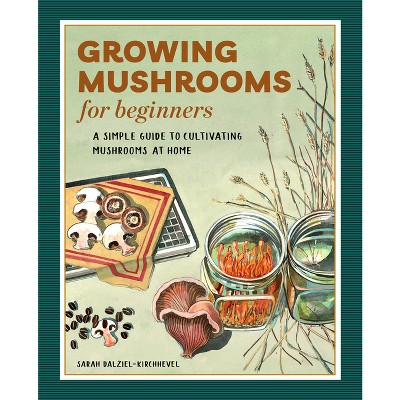
$8.49
MSRP $14.99
Buy 1, get 1 50% off select books
2 out of 5 stars with 1 ratings
